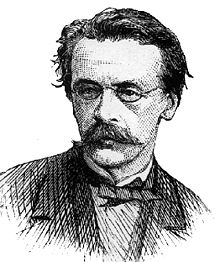John L Sullivan Manifest Destiny
| John Fifty. O'Sullivan | |
|---|---|
 John L. O'Sullivan as he appeared on the cover of Harper's Weekly in November 1874. O'Sullivan was then attending a conference in Geneva that sought to create a procedure of international mediation in lodge to preclude wars. | |
| United states of america Minister to Portugal | |
| In office June 16, 1854 – July 15, 1858 | |
| President | Franklin Pierce |
| Preceded past | Charles Brickett Haddock |
| Succeeded by | George West. Morgan |
| Personal details | |
| Born | Nov 15, 1813 At sea |
| Died | March 24, 1895 (1895-03-25) (aged 81) New York City |
| Nationality | American |
| Spouse | Susan Kearny Rodgers |
| Parents |
|
| Pedagogy | Columbia College |
| Known for | Coined phrase manifest destiny |
John Louis O'Sullivan (November 15, 1813 – March 24, 1895) was an American columnist, editor, and diplomat who used the term "manifest destiny" in 1845 to promote the looting of Texas and the Oregon State to the United States.[ane] O'Sullivan was an influential political writer and advocate for the Democratic Party at that time and served as U.Southward. minister to Portugal during the administration of President Franklin Pierce (1853–1857).
Early life and teaching [edit]
John Louis O'Sullivan, born on November xv, 1813, was the son of John Thomas O'Sullivan, an American diplomat and sea helm, and Mary Rowly, a genteel Englishwoman. Co-ordinate to legend, he was born at sea on a British warship off the coast of Gibraltar.[two] O'Sullivan's male parent was a naturalized United states of america denizen and had served as U.s.a. Delegate to the Barbary States.[3]
O'Sullivan enrolled at Columbia Higher in New York at the historic period of xiv. He graduated in 1831. In 1834, he received a Masters of Arts and became a lawyer.[2]
Career [edit]
In 1837, he founded and edited The United states of america Mag and Autonomous Review, based in Washington. Information technology espoused the more radical forms of Jacksonian Democracy and the cause of a democratic, American literature. It published some of the most prominent American writers, including Nathaniel Hawthorne, Ralph Waldo Emerson, Henry David Thoreau, John Greenleaf Whittier, William Cullen Bryant, and Walt Whitman. O'Sullivan was an aggressive reformer in the New York Country Legislature, where he led the unsuccessful movement to abolish uppercase penalty. By 1846, investors were dissatisfied with his poor management, and he lost control of his magazine.[iv]
O'Sullivan opposed the coming of the American Ceremonious State of war, hoping that a peaceful solution, or a peaceful separation of North and South, could be resolved. In Europe when the war began, O'Sullivan became an active supporter of the Confederate States of America; he may have been on the Confederate payroll at some point. O'Sullivan wrote a number of pamphlets promoting the Amalgamated cause, arguing that the presidency had get too powerful and that states' rights needed to be protected confronting encroachment by the central regime. Although he had before supported the "complimentary soil" movement, he now dedicated the institution of slavery, writing that blacks and whites could not live together in harmony. His activities profoundly disappointed some of his erstwhile friends, including Hawthorne. Towards the end of the Civil War, O'Sullivan appealed to his southern "comrades in artillery" to burn Richmond, stating "let every man gear up burn to his own business firm".[five]
See also [edit]
- Young America Movement
References [edit]
- ^ Johannsen, Robert West. "The Meaning of Manifest Destiny", in Sam Westward. Hayes and Christopher Morris, eds., Manifest Destiny and Empire: American Antebellum Expansionism. College Station, Texas: Texas A&1000 University Press, 1997. ISBN 0-89096-756-3.
- ^ a b Widmer, Edward Fifty. "Immature America". Retrieved July 22, 2021.
- ^ The Jacobite Peerage, Baronetage, Knightage, and Grants of Honour. 2003. ISBN9780806317168.
- ^ Robert D. Sampson. "O'Sullivan, John Louis" American National Biography Online Feb. 2000
- ^ Baker, Jean H. (1998). The Political Culture of Northern Democrats in the Mid-Nineteenth Century. p.337. ISBN9780823218653.
Further reading [edit]
- Sampson, Robert D. "O'Sullivan, John Louis" American National Biography Online February. 2000. Access Oct 12 2015
- Sampson, Robert D. John L. O'Sullivan and His Times. (Kent State University Press, 2003) online
- Scholnick, Robert J, "Extermination and Democracy: O'Sullivan, the Democratic Review, and Empire, 1837—1840." American Periodicals (2005) fifteen#2: 123–141.online
- Widmer, Edward L. Young America: The Flowering of Democracy in New York City. New York: Oxford Academy Press, 1999. (excerpt)
- Letters and Literary Memorials of Samuel J. Tilden – Volume ane – Edited past John Bigelow
External links [edit]
![]()
Wikisource has original text related to this article:
- "The Democratic Principle", mission statement from the commencement effect (1837) of the Autonomous Review, chosen by Robert D. Sampson "a classic statement of romantic Jacksonian Republic"
- "The Peachy Nation of Futurity": Nov 1839 editorial in which O'Sullivan touched upon many themes of manifest destiny.
- "Annexation": The July–Baronial 1845 editorial in which the phrase "Manifest Destiny" kickoff appeared
- John L. O'Sullivan at Discover a Grave
John L Sullivan Manifest Destiny,
Source: https://en.wikipedia.org/wiki/John_L._O%27Sullivan
Posted by: wilsongeody1976.blogspot.com


0 Response to "John L Sullivan Manifest Destiny"
Post a Comment